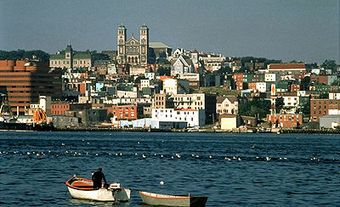Associations of music lovers formed with the aim of improving the members' knowledge and appreciation of music, enriching the concert life of the local community, and encouraging young artists. The women's (or ladies') musical clubs in many cases are the oldest surviving musical organizations in their communities. Of the 16 that have entries in EMC, only 6 have ceased to exist. In order of founding dates, and listed by their latest names, the 16 are:
1889 The Duet Club, Hamilton
1891 Club musical de Québec (also known as the Quebec Ladies' Morning Musical Club)
1892 Ladies' Morning Musical Club, Montreal
1892-1974 Concert Society of Ottawa (Morning Music Club)
1894 Women's Musical Club of Winnipeg
1898 Women's Musical Club of Toronto
1904-64 Calgary Women's Musical Club
1905 Halifax Ladies' Musical Club
1905 Vancouver Woman's Musical Club
1906-89 Victoria Musical Art Society
1907 The Regina Musical Club
1908-73 Edmonton Musical Club
1912-78 Women's Musical Club of Saskatoon
1915 Orpheus Club, Regina
1932-71 Lethbridge Music Club
1933 Wednesday Morning Musicale, Winnipeg
Other clubs are mentioned in some EMC entries on individual cities (eg, Brantford; London; Ottawa).
The development of these groups has shown a remarkably consistent pattern. The product of an age when men were supposed to be preoccupied with the harsh realities of business and professional careers and women with the refinements of the arts and with charitable work, the clubs began as series of meetings for discussion and performance in the homes of well-to-do families. Amateur musicians and music teachers took turns in arranging sessions on subjects such as 'The music of Schumann' or 'Ballads and folk songs.' Soon, recitals by professional performers, local or out-of-town, were added to the schedule, and the paying public, male and female, were admitted to such events. In later years some of the clubs admitted men to full membership. Over the years the emphasis on concerts has grown, as has the granting of scholarships, usually funded by bequests from former members.
See also Clubs.

 Share on Facebook
Share on Facebook Share on X
Share on X Share by Email
Share by Email Share on Google Classroom
Share on Google Classroom

